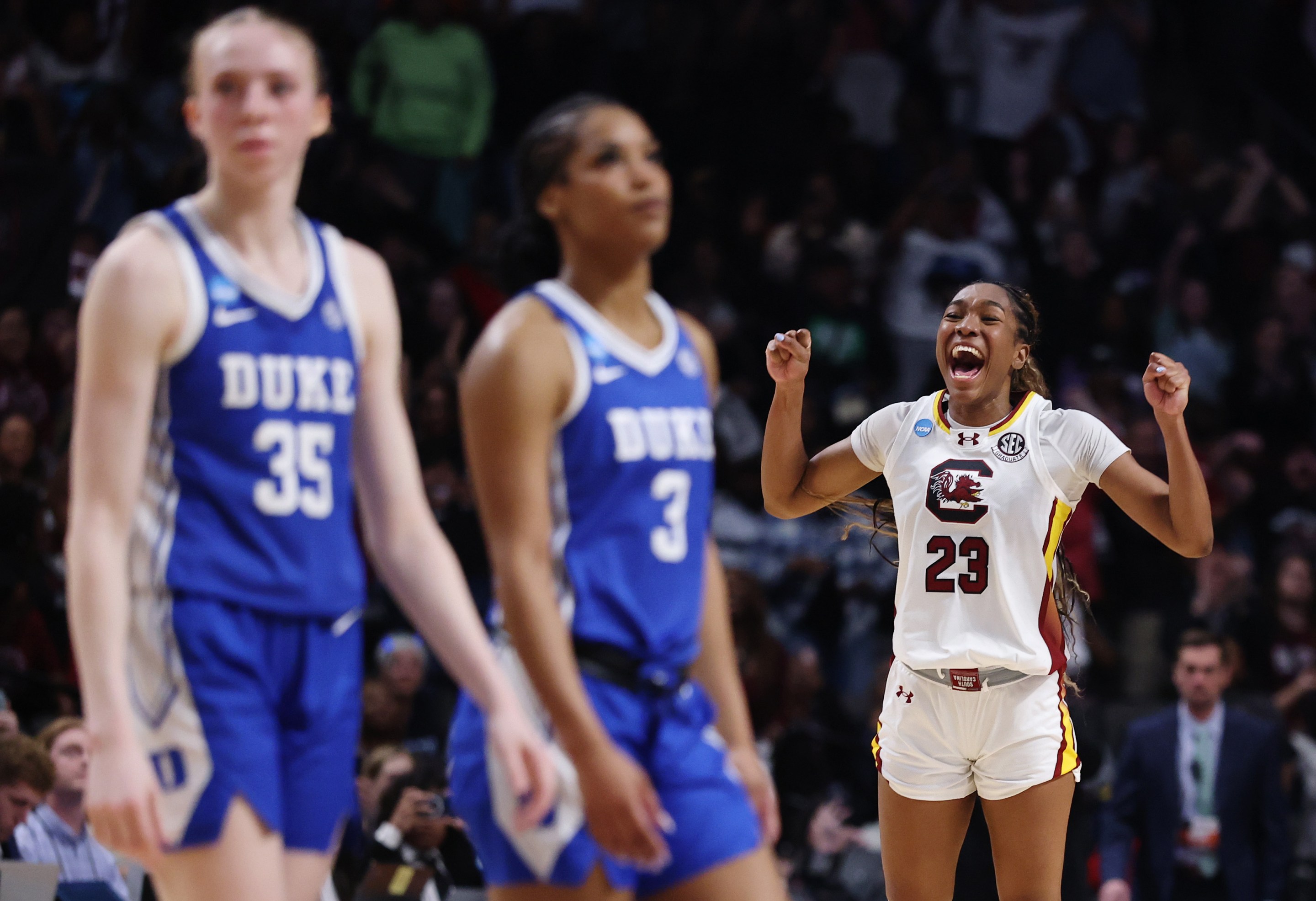Asked if she ever imagined she’d reach her fourth Final Four in four years, Sania Feagin didn’t bother with pretense. “Yes, I did,” the South Carolina senior forward said. “I did because all they do is win here.” In Feagin's four years as a Gamecock, the team has taken many shapes, winning with different players at the helm. Through it all, they’ve played with the easy, understated confidence of a favorite. More often than not, a favorite is what they’ve been.
The Gamecocks head to Tampa later this week to play the winner of Monday night’s No. 1 Texas-No. 2 TCU meeting, for a trip to the national championship game. To get to this familiar place, they’ve had to spend some time in unfamiliar places. They’ve trailed with a couple minutes to play; they’ve traded big fourth-quarter buckets; they’ve made game-saving stops and clutched up late at the free-throw line. Last season's title-winning South Carolina team came in waves, slowly but surely overwhelming opponents until the game was out of reach. Suspense expired at halftime. But with close wins over Duke in the Elite Eight on Sunday and Maryland in the Sweet 16 before that, the Gamecocks have shown they can also thrive on the ropes.
The team’s postseason experience gives head coach Dawn Staley good reason to trust them. “They have great talk amongst each other,” she said after Sunday’s 54-50 win over No. 2 Duke. A long South Carolina scoring drought in the second half kept a relentless, athletic Duke team in the game. Watch enough college basketball, and you’ll come to expect some baseline level of mistake-making. But the Gamecocks just don’t blink first. When Duke's last shot, which came down two with 30 seconds left, resulted in Ashlon Jackson putting up a contested airballed three, it did feel a little like the Gamecocks were getting away with something. Though the rebounding battle had been lopsided in Duke’s favor all afternoon, the Gamecocks pulled down the board that mattered: Senior Bree Hall caught the airball for a rebound.
The Blue Devils quickly sent junior Chloe Kitts to the free-throw line. Kitts had missed both free throws on a trip to the line in the third quarter, but now her teammates were here with the talk. “I was screaming, ‘You're unshakeable! You're unshakeable!’” Hall said. Feagin reminded Kitts to take a deep breath before she sank them both.
When she speaks about trusting her players, Staley might seem laid-back or hands-off, but in fact this team has been carefully managed. South Carolina's coach is attuned to a game’s tiny shifts, quick to recognize when Plan A should be scrapped for an alternative. “I really don’t think I've had a team that has been able to communicate as early. Like when we see something, we act,” Staley said.
There was a representative moment in Friday’s Sweet 16 game against Maryland, a 71-67 win. Without the same rebounding advantages they’ve enjoyed in recent seasons, the Gamecocks haven't been able to get to their transition offense as easily. So Staley leaned hard on MiLaysia Fulwiley, who makes everything—even a behind-the-back midrange jumper—look easy.
“The third quarter, we went back to our starters and it just really didn't feel right, the fluidity of it. And I think if it's that kind of game, Lay is the perfect guard that you can call on to manufacture points, and she did that," Staley said.
In their last three games, the Gamecocks are averaging a true shooting percentage of 49.5. South Carolina's offense will be challenged to step up, either way, against the stout frontcourt of Texas or TCU. Staley often uses little phrases to distinguish each of her teams from the next: Aliyah Boston’s Freshies group was the “doctorate program”; last year’s energetic, underclassmen-heavy winner was the “daycare center.” The word that seems to crop up around this season's team is “discipline.” They may not win in blowouts, but they’ll patiently solve each problem together, and sometimes that's enough. Call them the chess club.
Before the game against Duke, ESPN sideline reporter Kris Budden asked Staley what her team would need to do to reach their fifth straight Final Four. “Score one more point than they do,” Staley replied, chuckling. “You make it sound so easy,” Budden said. But Staley meant the opposite. At this point in the tournament, the margins for error and the margins of victory both start to shrink. A one-point win is a sign of the game getting harder.






